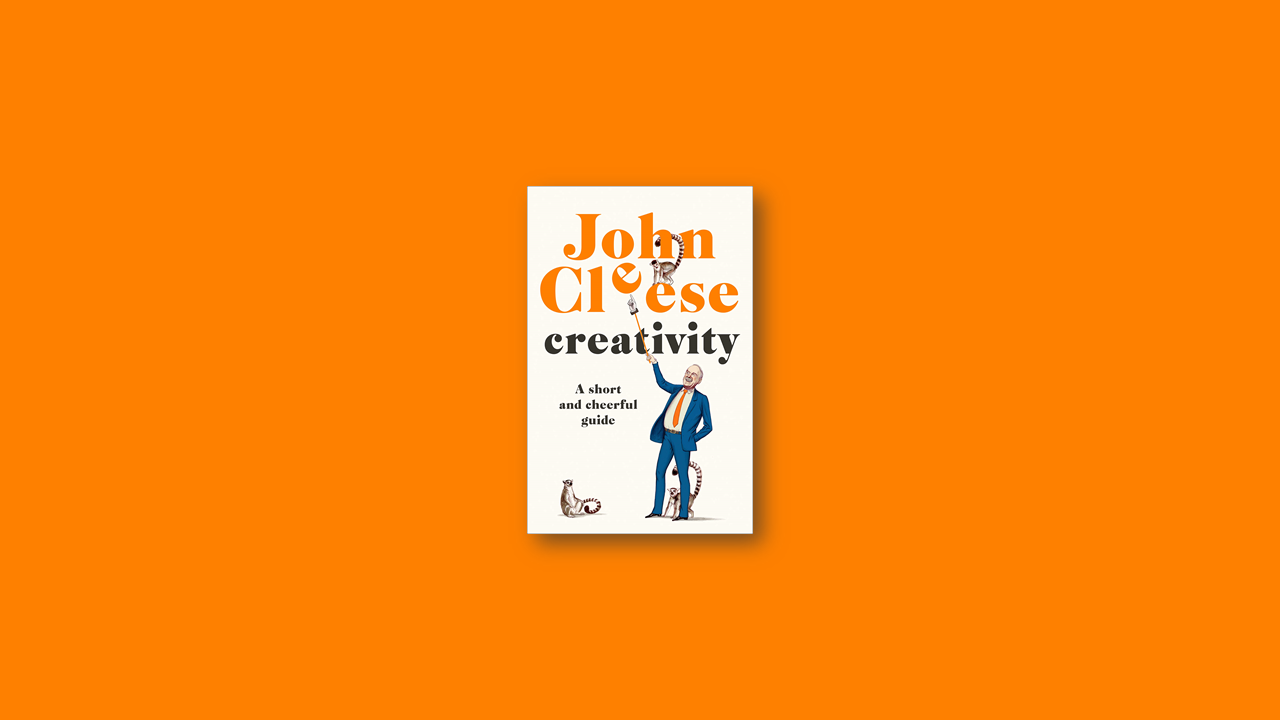Kindle | Hardcover | Audiobook
Looking for inspiration
When you start something creative for the first time, you have no idea what you are doing! But, whether you’re writing or painting or composing a song, you do need to start with an idea. As a beginner it’s not very likely that you’ll come up with a very good one. So “borrow” an idea from someone you admire—an idea that really appeals to you personally. If you start working on that, you’ll make it your own as you play with it. You’re learning, and learning from something or someone you admire is not stealing. It’s called “being influenced by.”
Of course, that doesn’t mean you can slavishly copy exactly what another person has done. That is stealing. And, in any case, what would be the point of doing that if you’re trying to produce something creative? Exact copying can teach technique, but this little book is about creativity, not forgery!
Keeping going
If you want to be creative in the world of science or architecture or medicine, you have to spend years educating yourself before you are ready to start thinking creatively about anything your colleagues might not already know.
However, in the Arts, it sometimes happens that successful novelists never quite achieve the originality of their first novel. This is because beginners sometimes have a freshness in their approach that later fades away. Picasso said that he drew better when he was ten than he ever did again. Edvard Munch’s later paintings never recaptured the intensity of his earliest ones.
The Buddhists have a phrase for this—“Beginner’s Mind”—expressing how experience can be more vivid when it’s not dulled by familiarity. Playing…keeps you “fresh.”
Coping with Setbacks
Whenever you try to come up with something original, you will find that some days the stuff flows, and some days it doesn’t. The anthropologist Gregory Bateson once said, “You can’t have a new idea ’til you’ve got rid of an old one.” This insight helps you to view your fallow periods as preparatory to the fertile ones, and therefore as an inseparable part of the whole creative process. When the juices are not flowing, don’t beat yourself up and wonder if you should retrain as a priest. Just sit around and play, until your unconscious is ready to cough up some stuff. Getting discouraged is a total waste of your time
Get Your Panic in Early
Begin with simple stuff, such as…Who are you writing for? Then, you can ask yourself whether the audience will easily accept what you’re saying, or whether they might be resistant. If so, you’ll have to persuade them, and not just tell them.
Then you can start pondering, “What am I really trying to say?” “What is the point of this piece of journalism, or speech, or book, or play, or pamphlet, or email?” Think up different approaches, compare them, begin gathering key facts and research—it never does any harm to have a few quotes!
Finally remember the famous apology, “Sorry this is such a long letter, but I didn’t have time to write a shorter one.” So when you finish your first draft:
- Cut anything that is not relevant (there will be more than you think).
- Don’t repeat yourself unless you really want to.
The Dangers of Over-Confidence
As a general rule, when people become absolutely certain that they know what they’re doing, their creativity plummets. This is because they think they have nothing more to learn. Once they believe this, they naturally stop learning and fall back on established patterns. And that means they don’t grow.
The trouble is that most people want to be right. The very best people, however, want to know if they’re right. That’s the great thing about working in comedy. If the audience doesn’t laugh, you know you’ve got it wrong.
Kill Your Darlings
Any good work of art will change—sometimes in major ways—during the course of its creation. At the beginning of the process a writer may get a great idea—one that they particularly like. This is their “darling.” Inevitably, as the project develops, parts of the story will change and that “darling” may not fit well into the new version of the narrative. A good writer will jettison it. A less good writer will hang on to it, so hindering the transition of the story to its new form.
Seeking a Second Opinion
If you are an experienced writer, and you show people your work, there are four questions you need to ask:
- Where were you bored?
- Where could you not understand what was going on?
- Where did you not find things credible?
- Was there anything that you found emotionally confusing?
Once you have the answers to these, then you go away, decide how valid the problems are…and fix them yourself.
As to when you should seek a second opinion, you should do so when you have reached a point of sufficient clarity for someone else’s judgement to be of practical help. Don’t wait until you feel your idea or project is as good as possible, because you may waste a lot of time if you ask for feedback too late in the procedure.
Kindle | Hardcover | Audiobook


